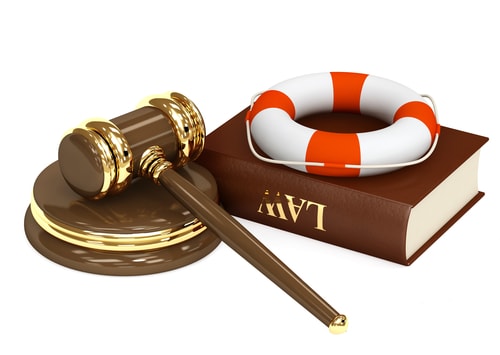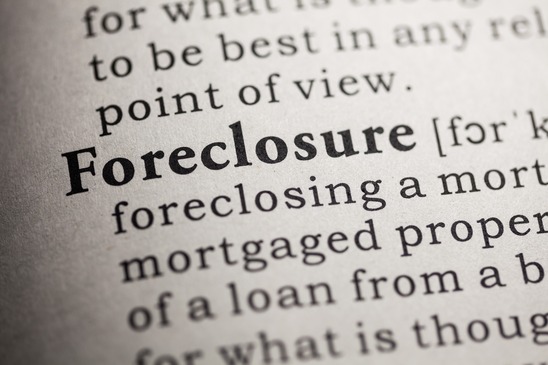Over 1 million small businesses across the U.S have been significantly negatively affected by the Coronavirus Crisis. This economic devastation is particular severe locally in the New York City area with its high number of diverse small business. From restaurants, to small shop owners, to startup businesses, the economic pain is being felt throughout the region. The economic consequences of the Coronavirus pandemic are hitting small businesses especially hard as customers practice social distancing and states require what are deemed to be non-essential businesses to remain closed. This is causing an economic domino effect as businesses are forced to then lay off workers and also effects vendors that these businesses normally do business with. In addition to the immediate public health crisis, many economists expect the COVID-19 pandemic to lead to a recession that could further impact many small businesses.
With the obvious need for financial help, Congress quickly passed initial stimulus bills. On the business side, as part of The CARES Act that was passed by Congress, $350 billion in relief for set aside small businesses. The loans funded by the bill can be used for payroll, paid sick, medical, or family leave, health care benefits, mortgage payments and rent, utilities, and other debt. No collateral or personal guarantees are required receive aid and the loans are potentially eligible for forgiveness. The aid to small business funded by the CARES Act will be handled by the U.S. Small Business Administration (SBA) however some of the loans will be processed by SBA-approved lenders and not directly by the SBA itself. However, that funding quickly ran out and many local small businesses that try needed the money did not seem to get it. (bob update if congress passes additional funding before the email is sent out) Below represents an outline of some of the basic loan programs available to small business owners.
Paycheck Protection Program
The Paycheck Protection Program (PPP) provides loans designed to provide a direct incentive for small businesses to keep their workers on the payroll. The program is intended to help small businesses (fewer than 500 employees) by lending them up to two months of payroll costs, with each loan capped at $10 million. No collateral or personal guarantees are required for PPP loans. Sole proprietors, independent contractors, and self-employed persons may also qualify for these loans. The PPP loan will be forgiven if all employees are kept on the payroll for eight weeks and at least 75% of the loan amount is used for payroll. The other 25% can be used for certain other expenses, such as rent, mortgage interest, utilities or employer covered health benefits. Forgiveness is based on the employer maintaining or quickly rehiring employees and maintaining salary levels and the amount of forgiveness will be reduced if the number of full-time employees declines, or if wages decrease. The loan portion not forgiven will have a maturity period of 2 years and an interest rate of 1%. Under the program, neither the government nor lenders will charge small businesses any fees. The SBA recommends contacting your local lender to see if they are participating in the program. These loans are made by banks, credit unions and other regulated lenders that have been approved by the SBA. Please note that PPP loan may not be well suited for businesses, such as bars and restaurants, that do not know if and when they will be able to return to normal operations.
The rollout of the PPP has been fraught with problems and now the program has now run out of money. Congress is presently in negotiations to authorize additional funding. Considering their great need and attractive terms, there was a mad rush to submit applications and because of that, the portals of some lender websites could not handle the volume and crashed. As of April 14, 2020, more than 1 million PPP loan applications have been approved, however it is not known how many applicants have actually received money under the program. Many small business owners have been frustrated by the fact that it has been difficult to obtain the status of their applications. Compounding the problem with obtaining these loans, many lenders restricted applications to current customers and even with that, the customer needed an existing loan with the lender. One thing is clear, at least anecdotally, businesses with existing banking relationships or good connections were the ones who receive the loans. Many businesses also fared better with local community banks who were more nimble in getting these loans approved. Unfortunately, many of the actual small businesses that the CARES Act meant to aid, have yet to receive any desperately needed funding. This has drawn the ire of many as apparently not such small businesses such as Ruth Chris Steakhouse, Potbelly Sandwich Shop and reportedly some hedge funds were early recipients of PPP loans.
To expand the options to small business owners, recently, some non-traditional lending institutions, such as PayPal, Cabbage and other non-conventional lenders have been approved by the SBA and are now accepting loan requests (contingent on new funding being provided by Congress). Businesses have reported that these companies have been able to process the loans faster than traditional banks. These lenders are also a good avenue for businesses with limited banking or credit relationships. Unfortunately, since the program has run out of funding, new applicants will be in limbo while Congress negotiates an extension.
PPP Information: https://www.sba.gov/funding-programs/loans/coronavirus-relief-options/paycheck-protection-program-ppp
Economic Injury Disaster Loans
SBA Economic Injury Disaster Loans (EIDL) are offered through an existing program with the SBA. They are intended to help provide the necessary working capital for small businesses to financially survive until normal operations resume after a disaster (such as the Coronavirus crisis). EIDL assistance is available only to small businesses when SBA determines they are unable to obtain credit elsewhere. Traditionally, EIDLs can provide up to $2 million to help meet financial obligations and operating expenses that could have been met had the disaster not occurred. The SBA states that the loan amount will be based on the actual economic injury and the company’s financial needs. The interest rate on EIDLs will not exceed 4 percent per year and the term of these loans will not exceed 30 years. The repayment term will be determined by the company’s ability to repay the loan. The loans are made directly by the SBA through their website.
Applicants for EIDL can request a $10,000 advance on their loan in form of a grant which does not need to be paid back. EIDL advances funds were supposed to be available to applicants within three days of their application, even if they weren’t approved for a loan. However, many applicants have reported that not only did they not receive the funding, they did not even receive a status on their application. Some applicants that did received the loan, received only a fraction of what they needed and applied for. In the face of the ongoing pandemic, the loan program has been overwhelmed by requests. In addition to having insufficient staffing to handle the applications, like the PPP, the program has also run out of money. However, Congress is negotiating adding additional funding to assist with the financial demands the program.
EIDL Program Information: https://disasterloan.sba.gov/ela/
EIDL Advances Information: https://www.sba.gov/funding-programs/loans/coronavirus-relief-options/economic-injury-disaster-loan-emergency-advance
Express Bridge Loan Pilot Program
The Express Bridge Loan Pilot Program (EBL) is a recent program from the SBA that allows small businesses who have an existing business relationship with an SBA-approved lender to access up to $25,000 quickly. The program is intended for small businesses in communities suffering from presidentially declared disasters or SBA-declared disasters. These loans are meant to “bridge” the gap while applying for a direct SBA Economic Injury Disaster loan. These loans are repaid in full or in part by proceeds from an EIDL loan. As of March 25, 2020, SBA expanded its program eligibility to small businesses across the country that have sustained financial loss because of the Coronavirus crisis. In addition, EBL lenders must document that EBL applicants had an operating business as of March 13, 2020 and that the applicant was adversely affected by COVID-19, according to SBA’s guidelines. If the Coronavirus crisis has affected the normal operations of your business, you may qualify for government help. However, given that the EIDL has reportedly been restricted to $15,000, it is unclear whether an EBL can be obtained for more than that amount.
Express Bridge Loan Program Guide: https://www.sba.gov/document/support–express-bridge-loan-pilot-program-guide
The Law Offices of David I Pankin, PC has represented many small businesses facing difficultly for over 20 years. If your business has been affected by the Coronavirus crisis and require legal assistance or guidance, please feel free to contact our office at 888-529-9600 or use our easy online contact form.






